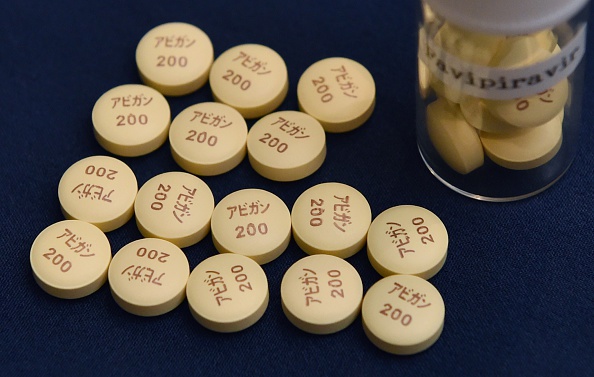As fears grew over a widening Ebola outbreak in west Africa, it was an unlikely company to which the world turned for help: Japan’s Fujifilm.
A newcomer to the pharmaceutical industry, the Japanese rival of Eastman Kodak was thrust into global spotlight when its anti-influenza drug emerged as a potential treatment for Ebola patients.
“If requested, we are ready to quickly produce mass amounts,” said Shigetaka Komori, Fujifilm’s chief executive.
The drug, called Avigan, helps block replication of viral genes within an infected cell, and was approved in Japan in March to treat influenza. Researchers have hopes it can work for a range of other diseases including Ebola, West Nile and Marburg virus.
This month, a French nurse recovered from Ebola after being treated with Avigan, and the French and Guinean governments will begin clinical trials of the drug to treat Ebola from November.
The company has a stockpile to treat 20,000 people and said this week that it will ramp up production from next month to meet overseas demand.
Shares in the company are up 16 per cent since the first week of August, when news of the drug’s wider potential emerged.
Fujifilm’s venture into medicine was part of a corporate makeover that began when its analogue film business crumbled with the advent of the digital age. Global demand for photo film peaked in 2000 and the market shrivelled to one-twentieth of its heyday by 2013.
It was that year that Mr Komori, now 75 years old, became Fujifilm’s president and bulldozed through the radical – and often painful – changes that have proved vital for its survival.
Under Mr Komori, Fujifilm branched out into pharmaceuticals and cosmetics, which helped to cushion the fall of its photo film sales.
In a reversal of fate, Kodak, the US arch-rival that Fujifilm had frantically chased after in the postwar period, filed for bankruptcy two years ago, unable to keep up with the industry’s changes.
Fujifilm’s audacious transformation is now an often cited case study for executives looking to diversify their businesses. The company’s nimble turnround also trumped Japan Inc’s reputation for slow restructuring, underscored by Sony’s decade-long entrapment in layoffs and cost cuts.
“You have to do it at one go. Or else it will take time and the wound will keep getting bigger,” Mr Komori said in an interview.
Mr Komori carried out two major rounds of restructuring, one begun in 2006 to offset the decline of its photo film business and another from 2009 in the wake of the global financial crisis. That led to the loss or replacement of 10,000 jobs and a combined restructuring charge of more than Y350bn ($3.3bn).
“Who’s going to oppose when the boat is about to sink? It’s better than sacrificing the entire company,” he says.

翻译仅供参考:
在埃博拉病毒肆虐西非引发的恐惧日甚之时,国际社会似乎不会去向日本富士胶片(Fujifilm)这样的公司寻求帮助。
本文关键字: 富士胶片推出抗流感药物能抗击埃博拉病毒
 免费试听
免费试听

时长 : 29:45 主讲 : 乔迪

时长 : 44:09 主讲 : 徐宸

时长 : 21:15 主讲 : 徐宸

时长 : 21:15 主讲 : 徐宸

时长 : 44:09 主讲 : 徐宸

时长 : 29:45 主讲 : 乔迪

时长 : 15:31 主讲 : 徐新磊

时长 : 18:37 主讲 : 孔令金

时长 : 15:31 主讲 : 徐新磊
 推荐阅读
推荐阅读
第十三届全国人民代表大会第二次会议(the second session of the 13th National People& 39;s Congress)5日上午在人民大会堂开
第十三届全国人民代表大会第二次会议(the second session of the 13th National People& 39;s Congress)5日上午在人民大会堂开
第十三届全国人民代表大会第二次会议(the second session of the 13th National People& 39;s Congress)5日上午在人民大会堂开
第十三届全国人民代表大会第二次会议(the second session of the 13th National People& 39;s Congress)5日上午在人民大会堂开
第十三届全国人民代表大会第二次会议(the second session of the 13th National People& 39;s Congress)5日上午在人民大会堂开
第十三届全国人民代表大会第二次会议(the second session of the 13th National People& 39;s Congress)5日上午在人民大会堂开
第十三届全国人民代表大会第二次会议(the second session of the 13th National People& 39;s Congress)5日上午在人民大会堂开
第十三届全国人民代表大会第二次会议(the second session of the 13th National People& 39;s Congress)5日上午在人民大会堂开
第十三届全国人民代表大会第二次会议(the second session of the 13th National People& 39;s Congress)5日上午在人民大会堂开
第十三届全国人民代表大会第二次会议(the second session of the 13th National People& 39;s Congress)5日上午在人民大会堂开
